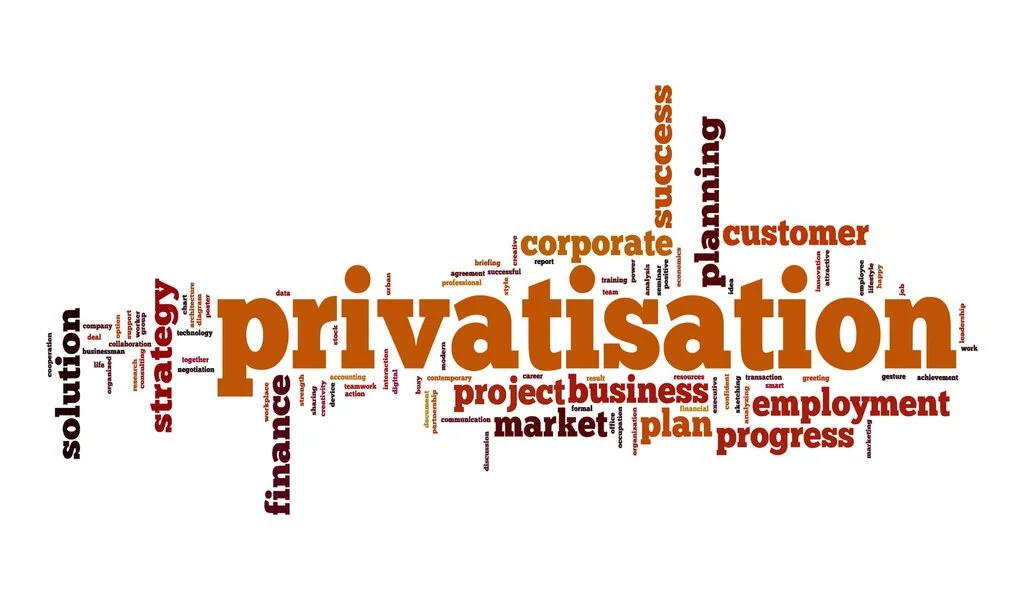Privatisation Explained: As the global economy wrestles with a host of new threats including rising inflation, falling stocks, and supply chain shocks brought on by the Russian invasion of Ukraine, governments and central banks are devising plans to take control of their economies and get firmly back on track. In the past, economic malaise has been dealt with in many ways; one of the most common being privatisation.
Celebrated and derided in roughly equal measures, privatisation has been a hallmark of much mainstream economic thought since at least the 1970s. Whether you’re a forex trader wanting to understand more about the economy, or simply want to get to grips with this critical macroeconomic topic, in this article we explore what it is, the advantages, and disadvantages.
What is privatisation?
According to the Organisation for Economic Co-operation and Development (OECD), privatisation is ‘considered any material transaction by which the state’s ultimate ownership of corporate entities is reduced’.
In practice, this means selling assets such as properties, organisations, and businesses owned by the government to individuals and groups in the private sector. It is the opposite of nationalisation, where businesses are bought out and taken over by the state.
What are the advantages of privatisation?
There are several advantages of privatisation which have facilitated the practice’s rise across the globe during the past 50 or so years.
First, being privately owned means that the owners, managers, and workers that make up the concern are impacted by the profit motive. This can act as an incentive to worker harder and more efficiently, as greater profits may mean greater rewards.
Competition between the business and its competitors can also act as a driver to modernise equipment and take action to increase productivity, benefitting not just the company but the wider economy in kind.
When sold, the government will receive money from the sale which can help its accounts, and it will no longer need to pay to support the business if it fails, reducing budget deficits.
What are the disadvantages of privatisation?
Privatisation does have its detractors though. Firstly, by selling assets which are turning a profit, the government can end up harming its own finances, especially if they are sold for less than what they are worth.
Monopolies can also occur as a result of privatisation, particularly in industries which have high costs or that do not lend themselves to competition, such as energy generation, water provision, or railways.
This can result in companies economically exploiting a captive customer base which can’t simply move to another supplier to escape rising prices.
Privatisation also rarely works for assets which are in the public’s interest, such as healthcare and education. The profit motive can result in poorer service than if the industry was nationalised and operated for public benefit.
Do you agree with privatisation? Let us know your views on this hot topic in the comments section below.
Related CTN News:
How Do I Find Discount Codes?
Everything You Need to Know About Electric Hybrid Bikes
4 Top Reasons to Choose a Franchise Option for Your Juice Business
⚠ Article Disclaimer
The above article is sponsored content any opinions expressed in this article are those of the author and not necessarily reflect the views of CTN News






